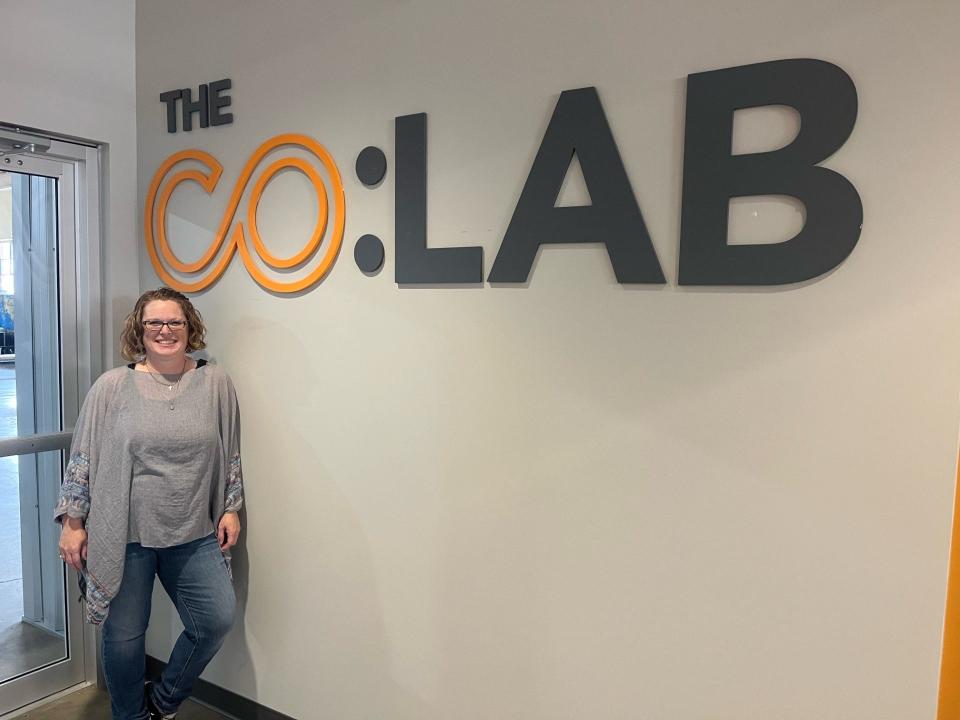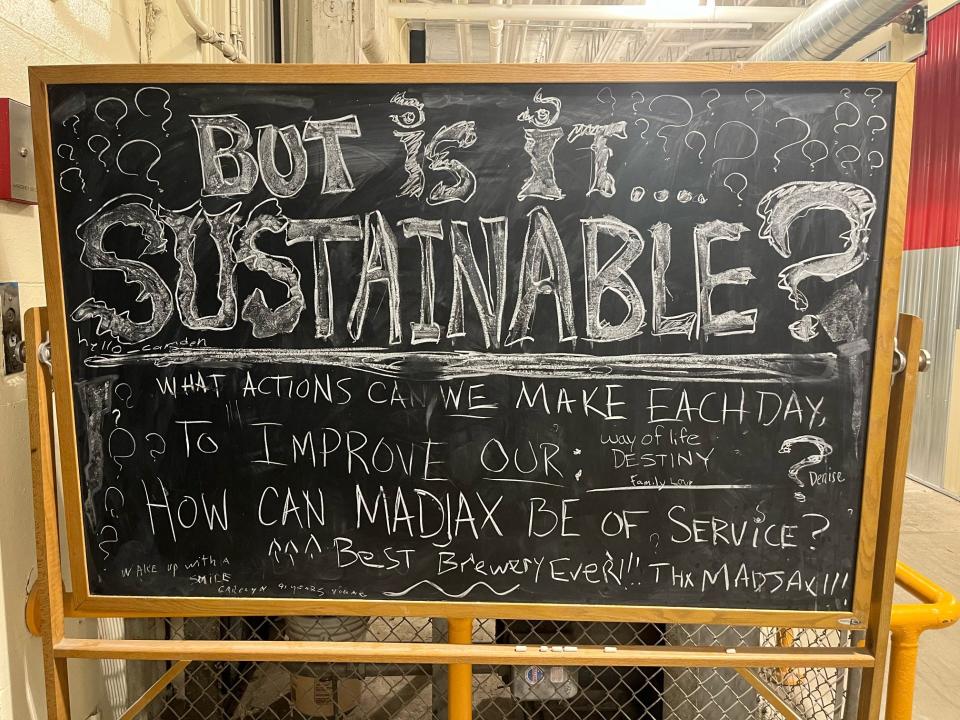Coworking spaces let people grow their businesses in a green way
Editor's Note: The following is part of a class project originally initiated in the classroom of Ball State University professor Adam Kuban in fall 2021. Kuban continues the project this fall semester, challenging his students to find sustainability efforts in the Muncie area and pitch their ideas to Deanna Watson, editor of The Star Press, Journal & Courier and Pal-Item. Stories will appear in upcoming weeks.
MUNCIE, Ind. – Coworking spaces are far from a new idea. According to wework.com, coworking spaces are an environment that’s designed to accommodate people from different companies who come to do work.
Sometimes that work is for a bigger company that you work for, but many people use these spaces for their own entrepreneurial ventures or LLC work. Over the years since their inception, many of these spaces have evolved from focusing on offering a space for entrepreneurs to grow their business in a space outside of their own homes to aiming for a more sustainable approach through the services and programs that these spaces provide.

Through a CO:LAB membership you gain access to the use of cool and innovative machines such as 3D printers, laser/vinyl cutters and even a waterjet. You also gain access to the wonderful space and wifi that you can use at any time. These places are everywhere around the world, but very few people seem to really understand the reasons why they push for sustainability so hard.
Madjax in downtown Muncie and their aptly named CO:LAB are filled with people and their businesses who want to keep this planet alive and well for as long as possible, and they aren’t afraid to let you know that. The focus on sustainability is apparent right when you walk in the doors. The moment you walk into Madjax, you are greeted with a huge chalkboard with the words “BUT IS IT... SUSTAINABLE?” written along it.
As you walk along the 88,000 square foot building, you just might stumble across Lisa Watson, the current property manager and the woman who oversees the CO:LAB. When asked about what the CO:LAB brings to the table in terms of sustainability Watson said, “We actively promote measures to enhance energy efficiency, encourage recycling, advocate for the use of reusable materials and facilitate resource-sharing.”

Throughout the entire facility, you see signs advertising all the different businesses and programs that work within the walls of the facility, along with tons of blue bagged recycling bins full of products just waiting to be reused. Brad Daugherty, the man whom Lisa Watson hails as “the CO:LAB and Madjax’s biggest cheerleader,” runs his business, Hoola Managed IT, all by himself inside of the CO:LAB. Daugherty has been a member of CO:LAB since 2015, and his impact on the entire Madjax building can be felt the moment you talk to him. The membership cost at the CO:LAB is $50/month for just a desk and $30/month to have a private mailbox in the lab. If you’d like your own dedicated office in the CO:LAB, you’ll have to pay more, but those prices can be found on their website. Daugherty now rents a private office inside of the CO:LAB where he can work on whatever he needs to get done, “You don’t need a 2000-square-foot building to run your business. You just get a few square footage, and you’re ready to go.”
Muncie obviously isn’t the only place in the world with coworking spaces; in fact, according to coworkingmap.org, there are over 300 in the state of Indiana alone and over 18,000 across the entire globe. Before the pandemic, which ended up doing substantial harm to the coworking space industry, things were on the rise for this industry for many years. According to a 2022 study by Carles Méndez-Ortega, Grzegorz Micek and Karolina Malochleb published in “Cities,” coworking spaces experienced an over 250% increase in the count of the Coworking Spaces and almost 400% increase in the number of users between 2015 and 2019. The community of people who use coworking spaces is growing along with the number of spaces at anyone’s disposal.
For some coworking spaces, such as Launch Fishers in Fishers, Indiana, that sense of community is what drives them to be sustainable in their space. According to Carolyn McEachran, the member experience manager at Launch Fishers, “People on the outside might not necessarily correlate community with a coworking space.”
Without the community within the space crafting and putting together new and interesting things, the space is simply unable to become more sustainable. This quote that was featured in a 2023 study by Anna Niutta and Amanda Brandellero, that was also featured in the journal “Cities,” states that “making was a central part of their operating as community hubs. The act of making together, particularly when more vulnerable groups were involved, was seen as providing care and support in more informal ways, beyond a service provider and client relationship.” These vulnerable groups include those who may not have access to the average workspace, such as poor or underprivileged people, or even those who live in smaller spaces such as apartments.
Coworking spaces everywhere, whether they’re 10 minutes away from your house or 10,000 miles away are working hard to bring people together to try and achieve a more sustainable planet. Through their business models and green approaches to recycling and carbon emissions such as their low membership cost, dozens of recycling bins, and lowered carbon emissions through the use of a shared space, coworking spaces are carving new ways to run your business in a more sustainable matter.
As McEachran says: “A lot of people probably think of co-working spaces where people just sit and do their work. We try to make it more than that.
This article originally appeared on Lafayette Journal & Courier: Coworking spaces let people grow their businesses in a green way

